November fills the commune of Huong Phung (Quang Tri province) with the hustle and bustle of the prime coffee harvesting season.
“The cherries are ready to be picked! When will the company from Hoi An come to buy them?” Ho Van So, head of Xa Ry Village coffee group says in excitement while looking at the ripe coffee cherries glowing in the autumn sun.
Xa Ry is one of seven coffee groups in Huong Phung commune (Huong Hoa district, Quang Tri province) participating in contract farming as suppliers for Hoi An Roastery and a local household coffee processing unit.
The partnership was established with the support from the Medical Committee Netherlands – Vietnam (MCNV) and has been growing robustly over the years, fueling the confidence in a bright prospect of a sustainable coffee supply chain.
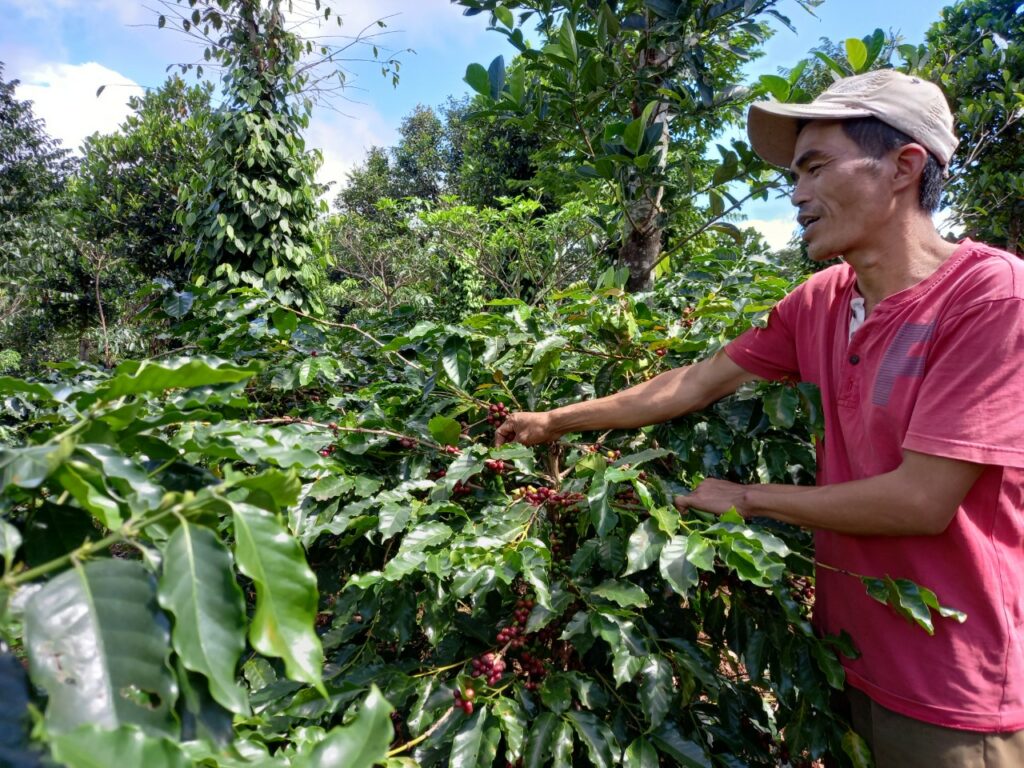
However, amidst the complication of COVID-19, for nearly two years, this promising model has been struggling with the risk of being shattered. The challenge forces businesses to formulate an adapting strategy and look for new resources for development. In order to facilitate the coffee supply chain access to the Dutch Fund for Climate and Development, MCNV has initiated a project titled: “Agroforestry coffee production of Hoi An Roastery & Arabica Coffee Smallholders in Quang Tri province, Vietnam.”
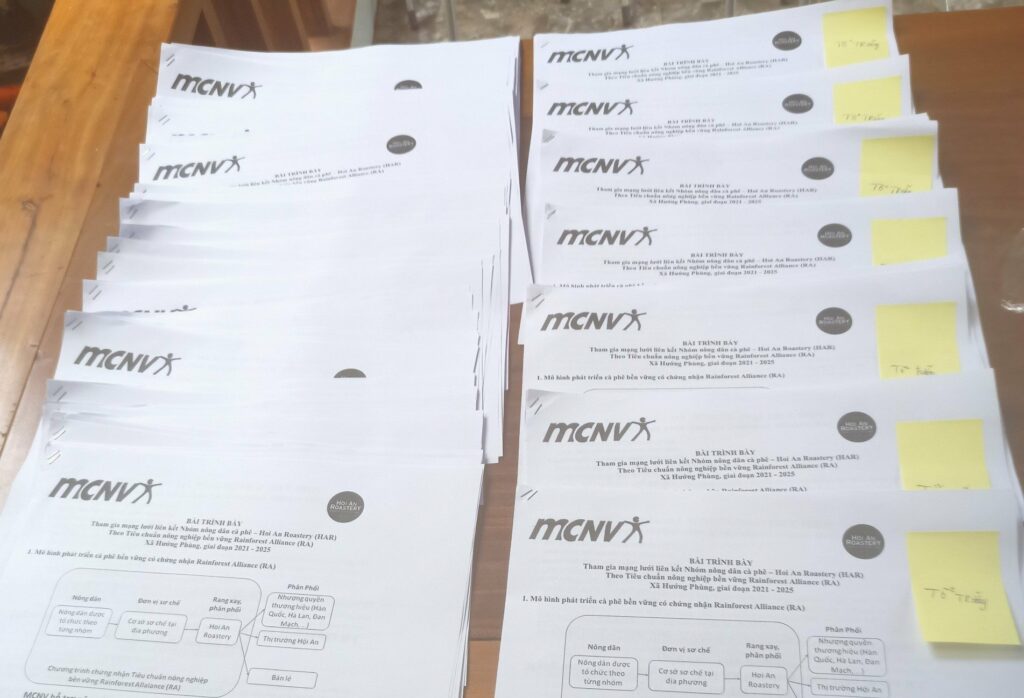
The project aims at promoting contract farming and certified coffee production to enhance the supply chain, contributing to the sustainable development of coffee production in Quang Tri.
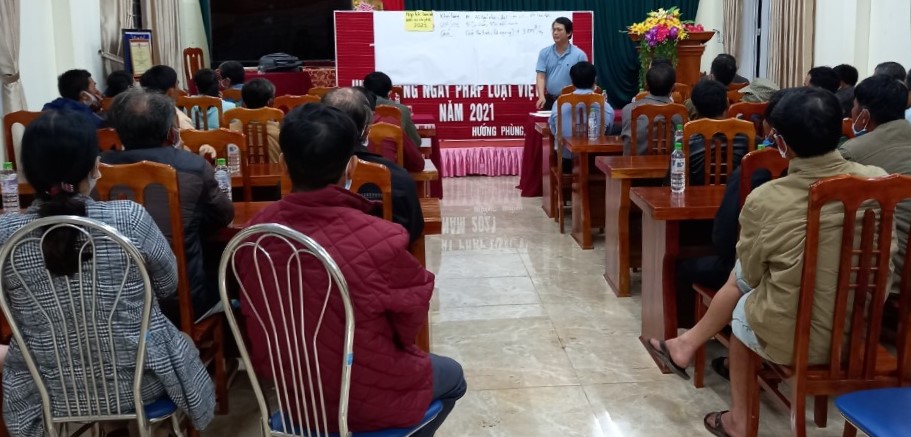
In 2021, the project marks a significant milestone by participating in the Rainforest Alliance (RA) certification program period 2021-2025 with a vision toward 2030. If the program is fully implemented, it will help increase farmers’ income, enterprises’ profit margins and contribute solution to tackle various social, environmental concerns as well as crop quality and productivity-related issues.
Before the project is implemented, most of the coffee was sold to middlemen. According to Ho Thi Nuong, a female member of Xa Ry coffee farming group, bargaining was impossible as they could not reach out to any other buyer.
The farmers therefore had no choice but scramble to sell their coffee. Limited market access and low level of market penetration has led to uncontrolled harvesting, lowing down the quality of processed coffee beans and threaten to reduce yields of the next harvesting season.
Farmers, at the same time, were trapped in a circle of numerous concerns including unstable coffee price, crop yields, fertilizer purchase and inadequate cultivation techniques. Most of them acquire fertilizer on credit and can only settle the payment once they receive cash from coffee buyers. This leads to complete reliance on middlemens, who play the role of both fertilizer supplier and coffee buyer.
“Thanks to the project, we are now harvesting coffee cherries following the RA standard. The quality is improved and the price is increased. All participating groups are enabled to bargain with the buyers before signing a contract. Payment for coffee sale is made in due time, facilitating farmers to pay for the fertilizer they bought on credit. Things are getting better!”, Nuong says.
Sharing the views of Nuong, Ho Van So adds:
“In 2020, I began to remove old low-yield coffee trees to plant around 2,000 trees per hectare. Quality is more important than quantity. Less trees also means less fertilizer. At the same time, we are growing other kinds of trees such as peppers to generate more income and provide shade for coffee trees.”
In October 2021, a series of workshops was organized by MCNV to give farmers an overview of the RA certification, in particular the criteria that must be met.
“At the beginning, it was so hard to get used to activities like writing farm diary and doing garden monitoring,” says Vo Chanh Thi (Dai Do village).
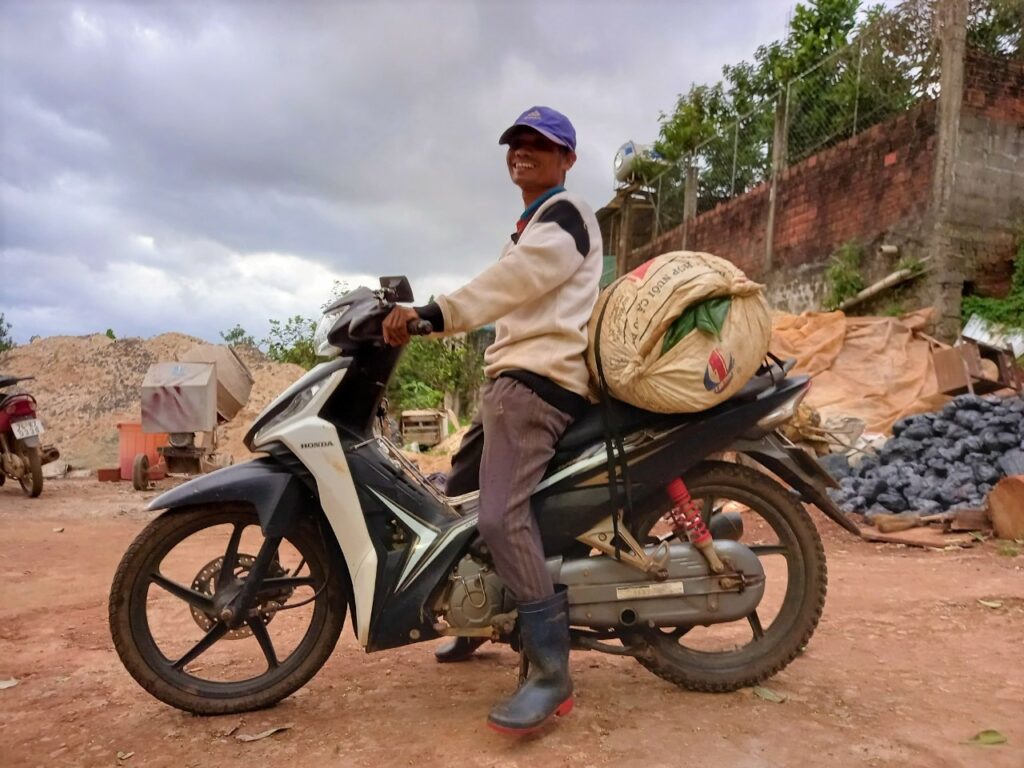
“Nonetheless, step by step, we have found out that this practice is highly beneficial. In addition to improving coffee quality and quantity, this model helps farmers feel confident since it ensures a stable and favorable price. Not only can they sell coffee at a higher price, they also get an extra income in accordance with a so-called “Sustainability Differential’’ policy when participating in the RA certification.
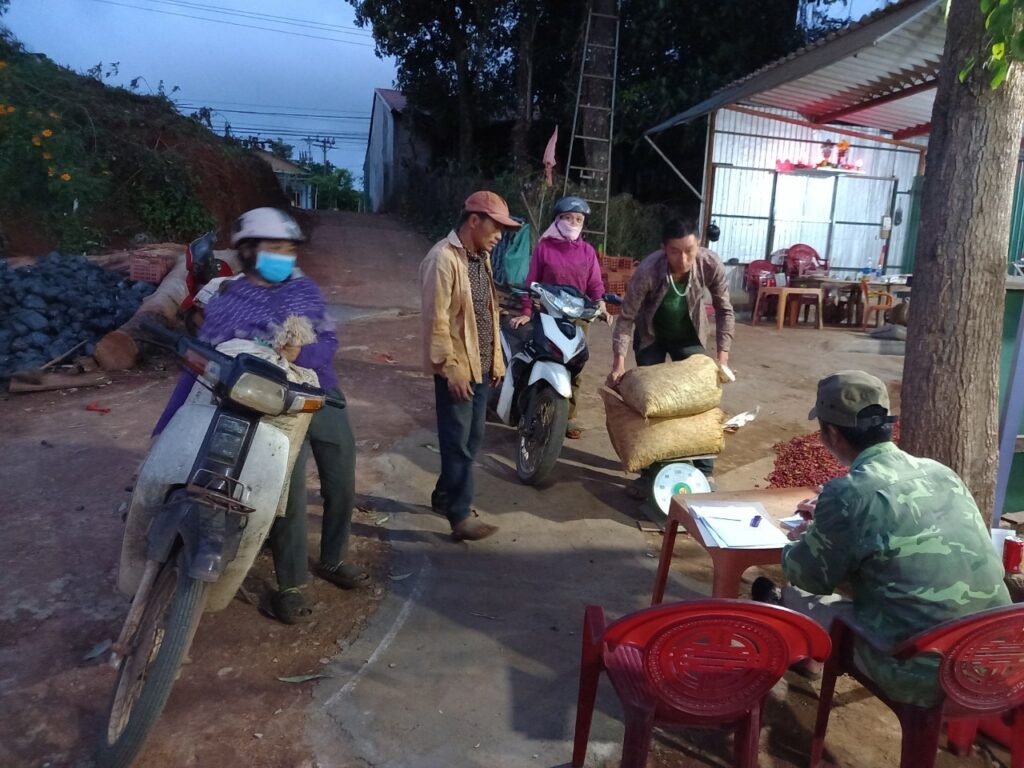
Seven groups of farmers (over 50 members) have taken part in the contract farming model of 2021, of which nearly 40% are people of ethnic minority. According to the farming contract, coffee cherries are sold to enterprises at significantly higher-than-market price.
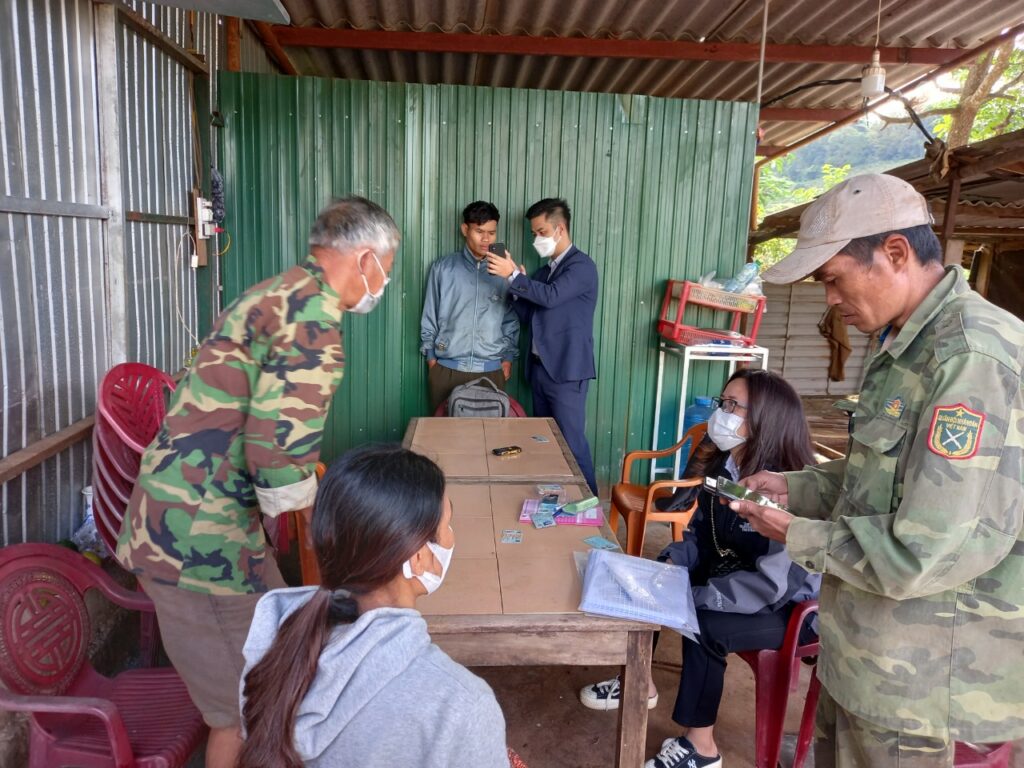
MCNV plays a facilitating role in this coffee supply chain by providing support, consultation and monitor to the entire process, including the establishment and capacity development of farmer groups, contract negotiations and signing, coffee supply and processing, bookkeeping, quality control, and development of a monitoring and evaluation system. In addition, MCNV has connected the beneficiaries with a local bank to open individual bank accounts, ensuring the transparency and timeliness of payment.
Based on the current progress, the year 2021 is expected to be a great stepping stone for the journey toward RA certification./.




